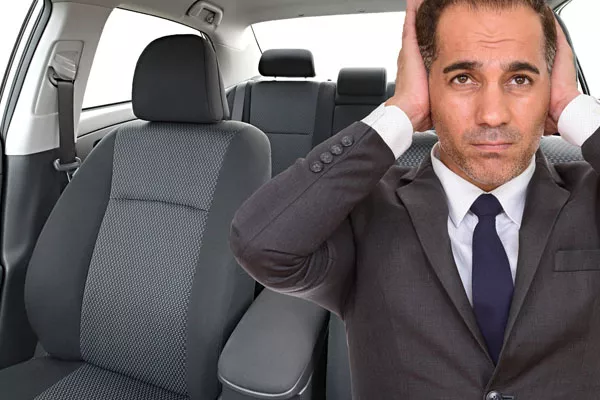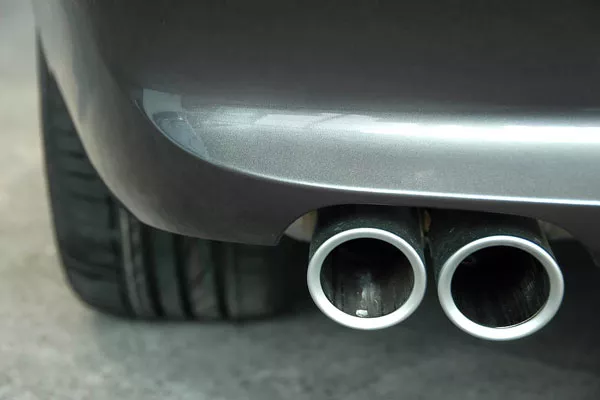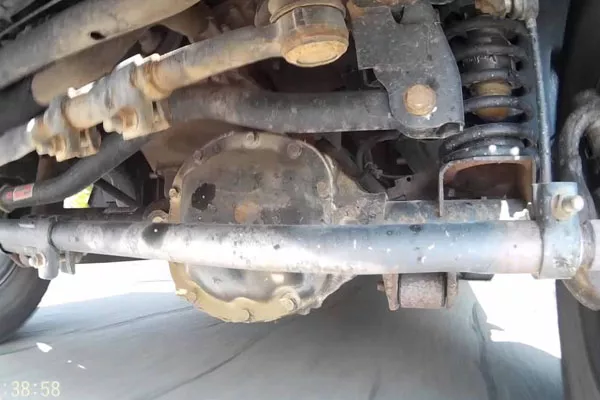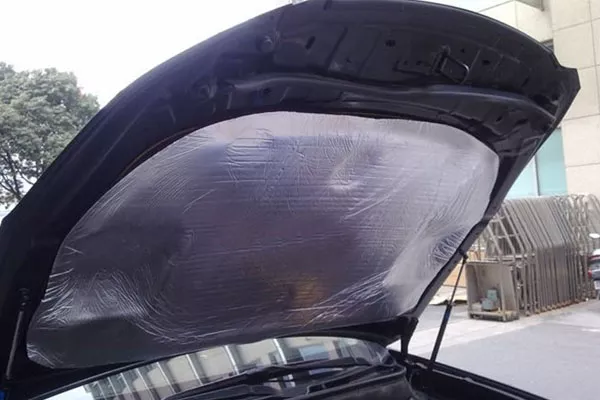We were driving to the South, running along the smooth and wide South Luzon Expressway, listening to our favorite road trip music, while admiring the beautiful, gloomy and dry day when suddenly, we hear a “tak tak tak tak” sound inside the car.
My husband then turned the audio off, turned the A/C off, as we tried to listen where the clunking noise is coming from. It comes from the rear right side and later on found out that there was a loose bushing.

It is irritating to hear unusual sounds coming from your car
Car sounds can be very alarming especially when you are in a journey and you have your family with you. What if it’s not just a loose bushing? What if your tires are kind of loose or there’s suddenly a mechanical problem in the engine?
Too many problems can arise from a simple car noise, and the best way to deal with it initially is to stop and figure out where the noise is coming from rather than continue driving with the risk of compromising you and your passengers’ safety.
Besides a possible safety issue, hearing noises from your vehicle is also quite irritating. Now, we don’t want to ruin a supposed to be happy and worry free journey just because our car is noisy. So, I guess the main question is… What do we do when our car is creating noises?
I. Types of Car Noises
Before we proceed on how to make your car run quietly on the road, it is important for us to know first what types of noises you can possibly here from your car. Let’s go through them one by one.
1. Engine Noise
Usually engine noise comes in the form of “knocks” or described as “pinging”. When your engine makes knocking noises, it could mean several things.
One, there may be a problem with air-fuel mixture that causes uneven burning of fuel rather than uniform bursts – this could lead to damaging the piston and cylinder wall.

Engine noise can be very alarming because any engine issues could lead your car to a road breakdown
Second, knocking sound can also mean that there’s lack of lubrication in the upper cylinder head area which then causing the valves and lifters to rub against each other creating a ‘ticking’ sound.
Additionally, knocking sounds can also mean that your fuel might have low octane rating, piling up of carbon deposits that hinders efficient fuel burning and lastly, spark plugs issue.
2. Exhaust Noise
If you hear a chugging sound that seem to come from the exhaust, it means that there could be a blockage in the exhaust system. If you hear a hissing sound, it could possibly signal a crack in the exhaust manifold, exhaust pipe or it could be a gasket leak.

Noise coming from exhaust could mean a blockage or loose parts
While rattling noise from the exhaust could mean misalignment of the exhaust system and if the noise sounds like a metallic vibration, it could mean that something is touching the exhaust pipe or it could be loose mounting bracket.
3. Suspension Noise
If you’re hearing noises when you run over a bump or whenever you turn a corner, it could be a problem with your suspension that include your shocks and struts. This could be caused by worn out shock absorbers or loose struts.

You may also here noises when you drive by a hump, hole or when you turn around a corner - this signifies a suspension problem
>>> Related: What’s that grinding noise when turning the steering wheel?
4. Wind Noise
Wind noise are noises coming from parts that might have worn out, cracked or loose rubber seals like door seals or gaskets.
5. Road Noise
This is the type of noise that are transferred inside the car from the wheels or wheel condition outside the vehicle.

Road noise are attributed to the wheels and tires of the car and the road condition outside
>>> Also check out:
- How to reduce car noises by taking care of the tires
- 10 bad car noises Filipino drivers should look out for
II. How to Address Different Types of Car Noises?
Now that we’re able to determine the kinds of noises that we can possibly here from our vehicle, let Philkotse.com show you how we can somehow lessen or even stop these annoying sounds.
1. Don't ignore the noise. Look for the source
This should be the very first thing you should do as a driver when you hear sounds coming from your vehicle. First, accept the fact that you are hearing a noise – don’t try to deny to yourself that your car is noisy and make yourself believe that it’s not coming from your car.

Don't be in denial. If you hear noises from your car, the more you have to accept that you may need to have it repaired
Second, if you’re on the road, turn off all other sound sources such as radio and air conditioning system and ask everyone to keep their silence. Listen carefully to determine the source of the sound. Try to classify what kind of sound is it – is it a chugging sound, clunking sound, hissing sound?
Once you have a strong hunch as to where its coming from, bring the car to a halt and try to go to the area where you think the noise is. Check for loose bushings, seals, or even parts that needs tightening.
Third, if you don’t have the skills or if you’re not confident enough to fix it yourself, bring your car straightaway to a reliable mechanic so they can check the noise source, determine the cause and fix it for you.
This has to be done immediately so as to avoid unwanted accidents because of unattended loose parts.
2. Make sure that all pre-installed sound reducing parts are in tact
Our vehicles have pre-installed sound reducing parts that are supposed to make our rides smooth and quiet. If they are out of place, or if they were accidentally removed from where they’re supposed to be – that could be the reason why your car is noisy.

Make sure that all sound reducing parts of your car are securely in place
For example, check under the hood – it is supposed to have a flame retardant pad which should be responsible for suppressing engine heat and at the same time reduce sounds coming from the engine.
In time, these pads also deteriorate causing it to hang loose or be out of place. Same thing also applies with misplaced rubber seals on car doors and windows.
Ensure that all of these noise reducing parts are secured properly in their places.
3. Use appropriate, narrower car tires for quieter runs
Generally, the narrower the tires are, the lesser the noise it can create – like 16-inch wheels tend to run quieter than 18-inch wheels.
4. Install additional sound insulation
For more silence, although completely optional, you may also install specialized sound deadening insulation.
Visit our website everyday to learn new and useful car tips and advice!
Recent posts
- 7 steps to deal with the car brake noise Nov 30, 2022
- 10 bad car noises Filipino drivers should look out for Mar 16, 2021
- How to reduce car noises by taking care of the tires Nov 27, 2017












